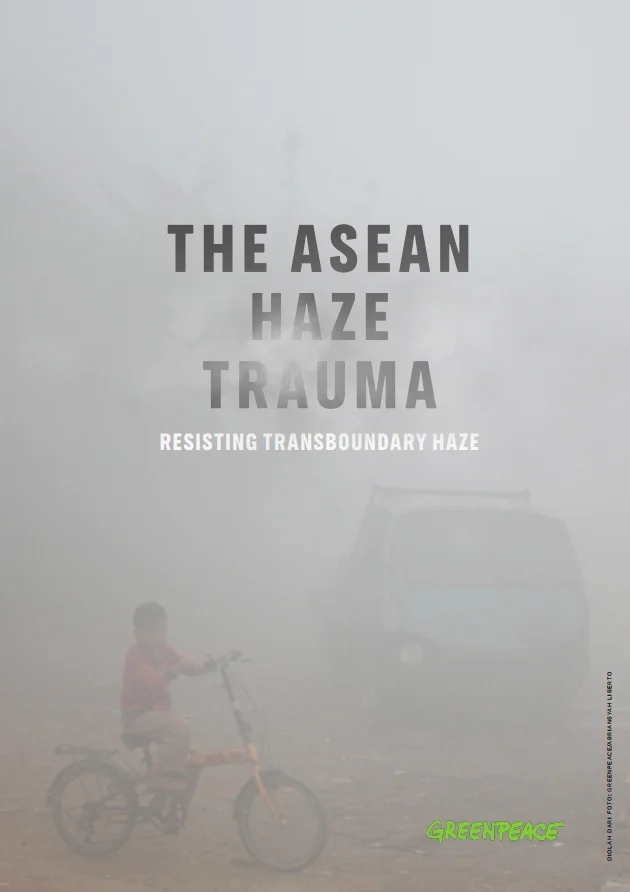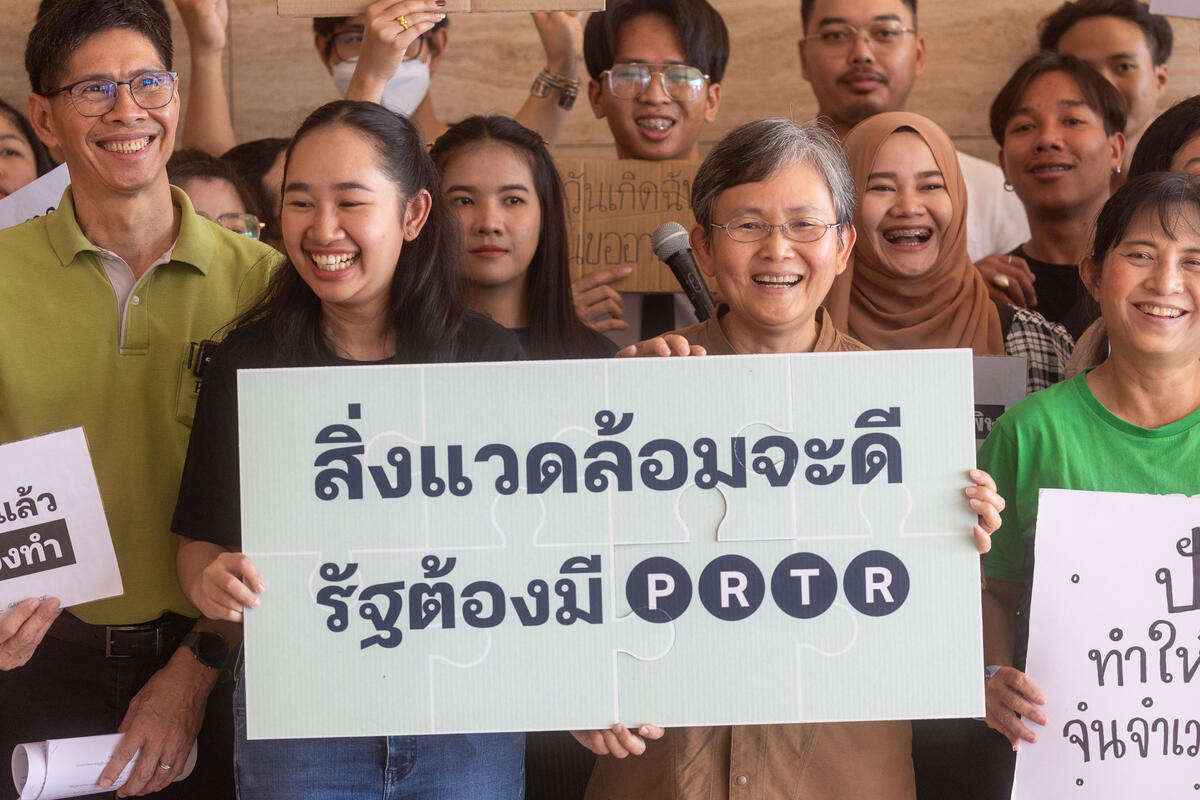Bangkok, 24 May 2025 — Ahead of the ASEAN Civil Society Conference/ASEAN Peoples’ Forum in Kuala Lumpur, Malaysia, taking place from 24–25 May 2025 under the theme “Inclusivity and Sustainability”, Greenpeace Thailand, Ecological Alert and Recovery – Thailand (EARTH), and regional civil society networks are calling on ASEAN leaders to collectively endorse a legally binding ASEAN Environmental Rights (AER) framework to address the region’s worsening transboundary pollution and environmental injustice.
Cases of transboundary pollution illustrate ASEAN’s failure to jointly address and act on the cross-border ecological and health crises. The current key threat in the Greater Mekong subregion, gold and rare earth mining operations in Shan State, Myanmar—only 20 kilometers from the Thai border and 2–3 kilometers from the Kok River are threatening ecosystems, public health, and local economies in Chiang Rai and Chiang Mai provinces. Toxic heavy metals discharged from mining activities are likely to accumulate in the environment and risk spreading downstream into the Mekong River Basin. This is not merely an environmental issue, but a serious violation of human rights, particularly those of ethnic minorities and vulnerable groups who deserve stronger protection.
Meanwhile, the recurring transboundary haze pollution from large-scale agro-industrial burning (e.g., corn, sugarcane, palm oil) in neighboring countries has become a chronic crisis, severely impacting provinces in Northern and Southern Thailand with dangerously high levels of PM2.5 air pollution, threatening public health and tourism.
Rattanasiri Kittikongnapang, Food and Forest Campaigner at Greenpeace Thailand stated:
“ASEAN can no longer remain silent in the face of public outcry over transboundary pollution, whether it’s toxic haze drifting into our lungs or dangerous chemicals contaminating the Kok River from mining in neighboring states. We must acknowledge today that geographical borders cannot stop the spread of pollution into our air and water. ASEAN must advance the principle of ‘Polluter Pays’ that holds transnational corporations accountable for the environmental damage they cause across borders. This is a matter of justice and shared responsibility to protect our regional commons.”
Penchom Saetang, Director of the EARTH Foundation, added:
“Southeast Asia is facing escalating environmental and health risks due to industrialisation, fossil fuel dependency, and mining. Without urgent action, these could spiral into irreversible disasters. For over 30 years, the United Nations has emphasized that sustainable development must be grounded in public participation, access to information, and environmental justice. ASEAN must evolve to promote transparency, resilience, and long-term regional stability, ensuring that all people have the right to live in a safe and healthy environment.”
Policy Recommendations to ASEAN Leaders:
- Promote Sustainable and Responsible Business Practices
- Establish cross-border corporate accountability frameworks that uphold human welfare and well-being. Enforce environmental and human rights obligations across all levels of the supply chain.
- Strengthen Legal Accountability for Transboundary Pollution
- Mandate Strategic Environmental Assessments (SEA) and legally binding Transboundary Environmental Impact Assessments (TEIA). Empower home states of parent companies to exercise extraterritorial jurisdiction over corporate misconduct.
- Enhance Public Participation and Transparency
- Advocate for an ASEAN Protocol on the Right to Know to guarantee public access to environmental information, participation, and justice. Establish a regional pollutant release and transfer register (ASEAN-PRTR) and promote human rights due diligence (HRDD) throughout supply chains.
- Support Peace and Inclusive Coexistence for Equitable Society
- Prioritize the rights of ethnic minorities, Indigenous peoples, and vulnerable communities. Recognise the critical role of local communities in safeguarding ecosystems and ensuring social cohesion.
- Establish a Legally Binding ASEAN Environmental Rights (AER) Framework
- Develop a legal instrument to address high-risk transboundary environmental threats, such as rare earth mining in Myanmar. Review ASEAN–China Environmental Cooperation Strategies to include robust mechanisms for joint environmental and human rights impact assessments.
International civil society groups are also calling on ASEAN leaders, particularly the Prime Minister of Malaysia as the 2025 ASEAN Chair to support the development of a legally binding ASEAN Environmental Rights framework encompassing corporate accountability, pollution liability, public participation, and the protection of Indigenous and local communities. It must also foster long-term ASEAN–China cooperation on sustainable environmental governance and human rights protection.
For more information, please contact:
Somrudee Panasudtha, Senior Media Campaigner, Greenpeace Thailand
Tel. 081 929 5747 Email: [email protected]



